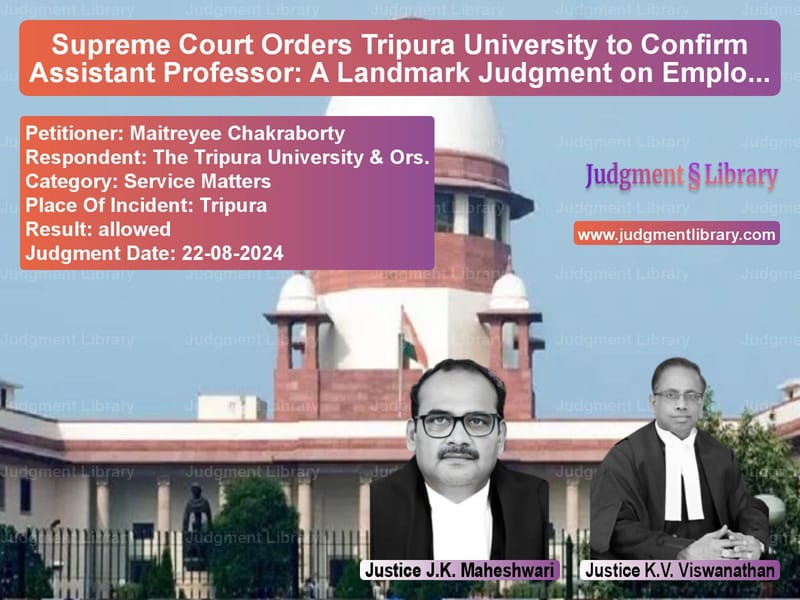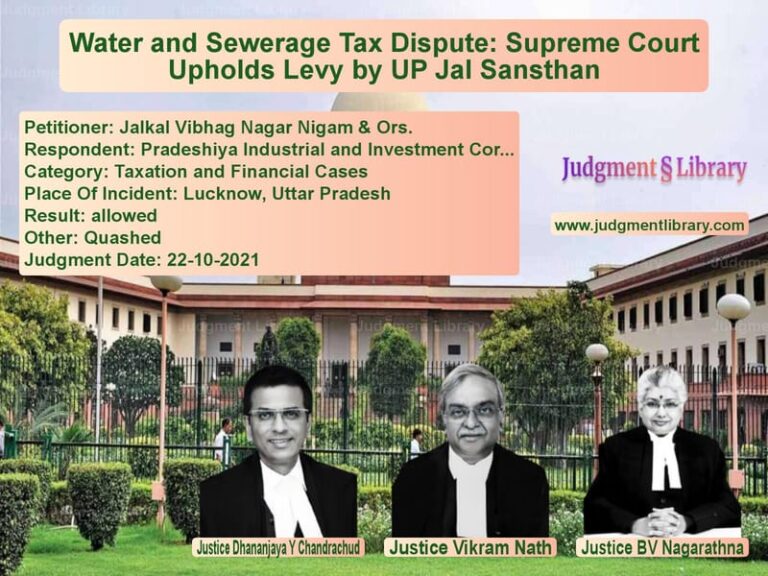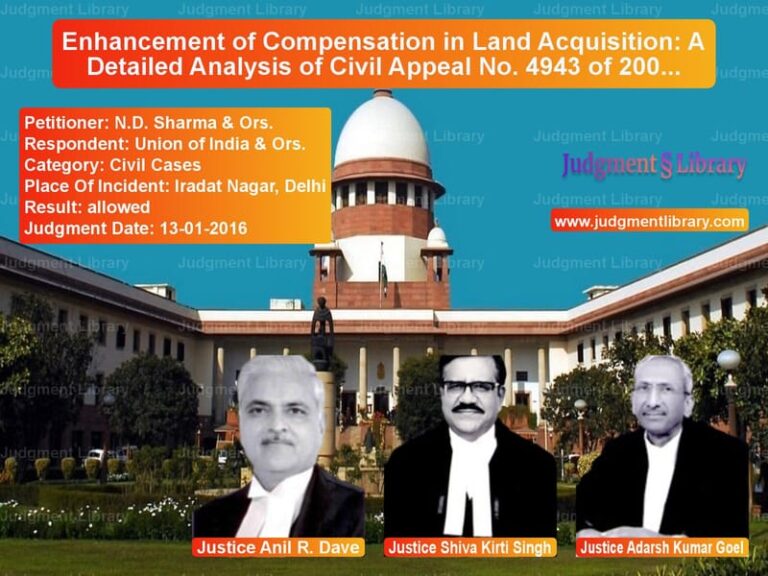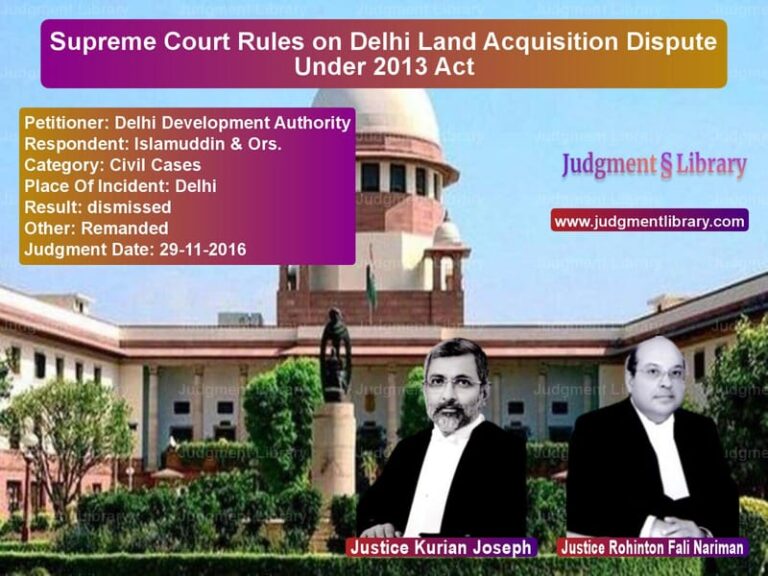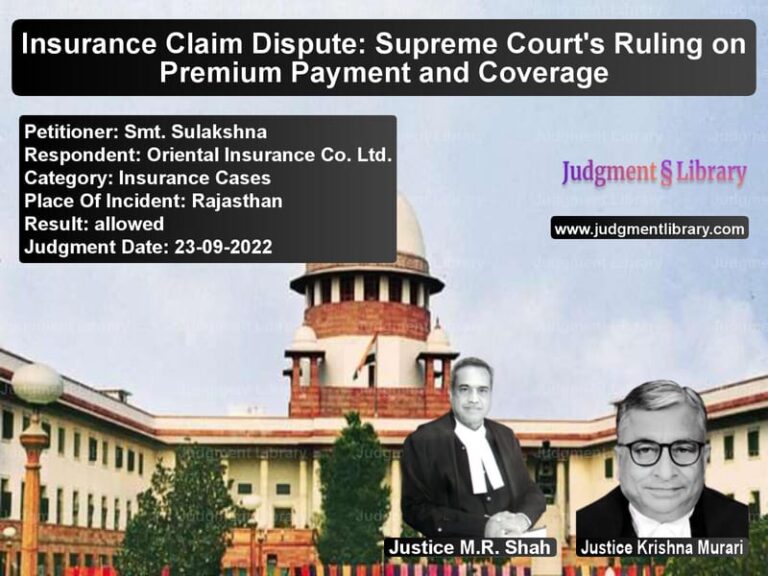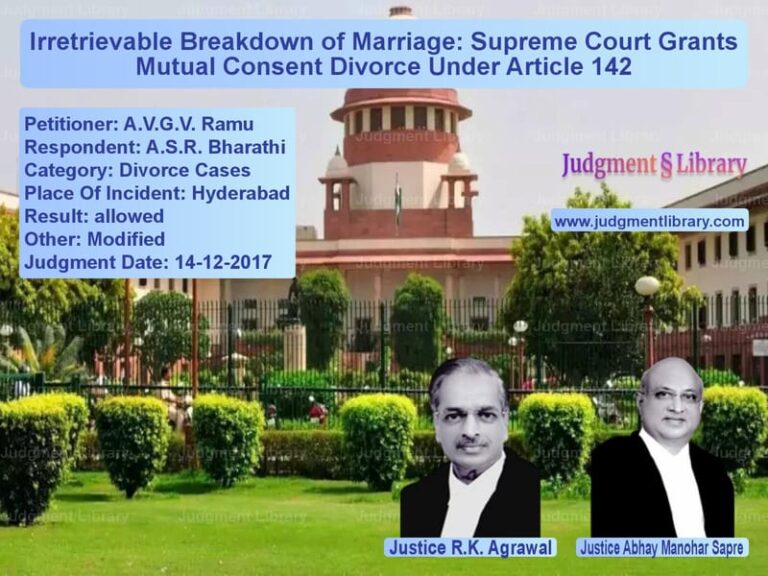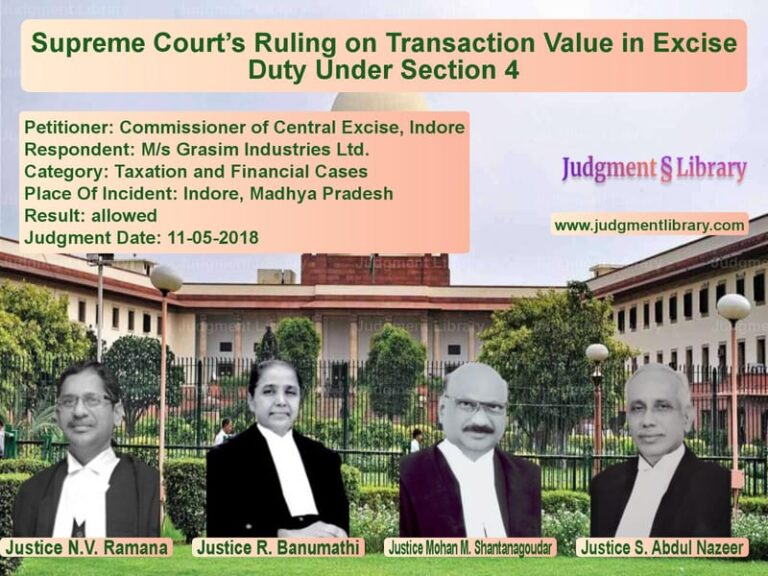Supreme Court Orders Tripura University to Confirm Assistant Professor: A Landmark Judgment on Employment Rights
The Supreme Court of India recently delivered a critical judgment in the case of Maitreyee Chakraborty vs. The Tripura University & Ors., addressing the issue of faculty appointments in universities, particularly regarding lien vacancies. The ruling overturned the Tripura High Court’s decision and directed the university to confirm the petitioner’s appointment, reinforcing the principle that institutions cannot arbitrarily deny confirmation to employees who have fulfilled the requisite conditions.
Background of the Case
The dispute arose from the recruitment process initiated by Tripura University in 2016, when it advertised multiple vacancies for the post of Assistant Professor in Law. These included:
- One regular vacancy in the unreserved category.
- One lien vacancy in the unreserved category.
- One lien vacancy for OBC candidates.
The petitioner, Maitreyee Chakraborty, applied and was shortlisted for the interview. After the selection process, the university placed her in the unreserved lien vacancy, while another candidate, Brij Mohan Pandey, was appointed to the regular post.
What is a Lien Vacancy?
A lien vacancy arises when a permanent employee takes leave to join another position while retaining their right to return to the original post. In this case, Dr. Praveen Kumar Mishra was granted a lien while joining Sikkim University, and his departure created the lien vacancy.
Initial Appointment and University’s Assurance
The petitioner joined her position as an Assistant Professor on January 17, 2017, after resigning from her previous job. The appointment letter explicitly stated:
- She was appointed against a lien vacancy.
- If the lien holder returned, her employment could be terminated.
- If the lien was vacated, her appointment could continue with the approval of the university’s Executive Council.
In 2017, Dr. Mishra formally resigned from his original post, thereby vacating the lien. This meant the petitioner was now eligible for confirmation as per the employment notice.
Unexpected Termination Notice
Despite the lien vacancy being vacated, the university did not confirm the petitioner’s appointment. Instead, in its 32nd Executive Council meeting on December 13, 2018, the university resolved to re-advertise the post and informed the petitioner that her employment would end on February 28, 2019. She was also given the option to apply as a guest faculty.
Petitioner’s Arguments
Challenging the university’s decision, the petitioner, through senior advocate Ghanshyam Joshi, argued:
- She had undergone a regular recruitment process, competing for both the regular and lien vacancies.
- The university’s own employment notice assured that appointments made to lien vacancies were likely to be regularized if the lien was vacated.
- There was no adverse remark on her performance during her tenure.
- Re-advertising the post was arbitrary and against the principle of legitimate expectation.
- The decision violated Article 14 (Right to Equality) of the Constitution.
Respondent’s Arguments
The university defended its decision, stating:
- A lien vacancy is inherently temporary and does not guarantee confirmation.
- The decision to re-advertise the post was taken in the larger interest of allowing other candidates to apply.
- Many potential applicants may have refrained from applying earlier because the vacancy was a lien position.
High Court’s Ruling
The Tripura High Court upheld the university’s decision, reasoning:
- The petitioner was aware that she was appointed against a lien vacancy.
- The university had the discretion to re-advertise the post after the lien was vacated.
- Other eligible candidates deserved the opportunity to apply.
Supreme Court’s Observations
The Supreme Court, while overturning the High Court’s decision, made the following key observations:
- The employment notice advertised both lien and regular vacancies together, allowing all candidates to compete for both.
- The university failed to demonstrate any negative remarks against the petitioner’s performance.
- Once the lien was vacated, the petitioner had a legitimate expectation to be confirmed in the post.
- The decision to re-advertise was arbitrary and contrary to principles of fair employment.
Final Judgment
On August 22, 2024, the Supreme Court ruled:
- The university’s decision to re-advertise the post was set aside.
- The petitioner must be confirmed in the post of Assistant Professor in Law.
- The confirmation must be finalized within four weeks.
- The petitioner is entitled to all consequential benefits, including salary adjustments and seniority.
Implications of the Judgment
This ruling sets a significant precedent in employment law, particularly in academic institutions. The key takeaways include:
- Protecting employee rights: Institutions cannot arbitrarily deny confirmation after a candidate has served satisfactorily.
- Ensuring fairness in employment: If a lien vacancy is vacated, the occupying employee has a legitimate expectation to be confirmed.
- Judicial oversight on university decisions: The ruling ensures that universities cannot exploit temporary appointments to deny employees their rightful benefits.
- Upholding Article 14: The Supreme Court reaffirmed that employment decisions must be based on fairness and equality.
Conclusion
The Supreme Court’s decision in Maitreyee Chakraborty vs. The Tripura University & Ors. is a landmark ruling that strengthens employment rights in academic institutions. It establishes that once an employee is appointed through a regular process and the conditions of employment are fulfilled, they cannot be arbitrarily removed or denied confirmation. This judgment serves as an important precedent for employees facing similar injustices in public sector employment.
Petitioner Name: Maitreyee Chakraborty.Respondent Name: The Tripura University & Ors..Judgment By: Justice J.K. Maheshwari, Justice K.V. Viswanathan.Place Of Incident: Tripura.Judgment Date: 22-08-2024.
Don’t miss out on the full details! Download the complete judgment in PDF format below and gain valuable insights instantly!
Download Judgment: maitreyee-chakrabort-vs-the-tripura-universi-supreme-court-of-india-judgment-dated-22-08-2024.pdf
Directly Download Judgment: Directly download this Judgment
See all petitions in Employment Disputes
See all petitions in Recruitment Policies
See all petitions in Public Sector Employees
See all petitions in Termination Cases
See all petitions in Judgment by J.K. Maheshwari
See all petitions in Judgment by K.V. Viswanathan
See all petitions in allowed
See all petitions in supreme court of India judgments August 2024
See all petitions in 2024 judgments
See all posts in Service Matters Category
See all allowed petitions in Service Matters Category
See all Dismissed petitions in Service Matters Category
See all partially allowed petitions in Service Matters Category

